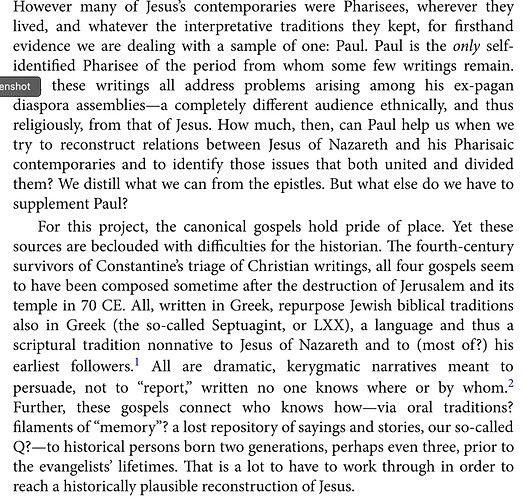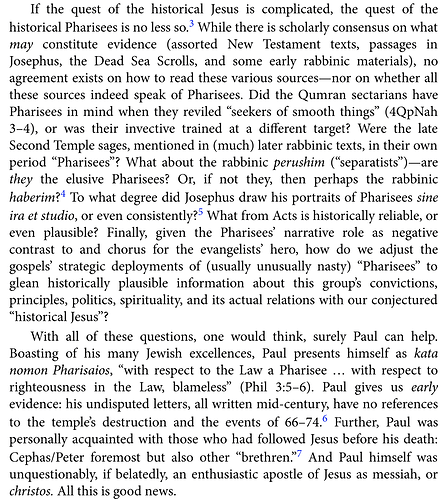What did you read?
Now you are going to embarrass me by making me admit it was mostly Wikipedia, with some reference somewhere to where Paul stated he was a Pharisee from scripture.
Not me. I love Wikipedia. We know it’s not dissertation quality material but its the greatest intellectual repository/database in the world.
Apparently the Wikipedia entry on the Dirichlet distribution has (or had) the formula for the variance incorrect, and the incorrect formula can now be found all over the web. (I say ‘apparently’ because I learned about the mistake from Twitter – that’s always a rock-solid source of information, right?)
Wikipedia also has a bunch of random errors in scientific fields inherited from other databases.
[emphasis added]
So apparently that got corrected there? To me that is one of the strengths to celebrate about Wikipedia, similar to science itself. There are enough eyeballs on it, that stuff gets corrected too.
Hardly. Anybody can contribute an article to Wikipedia, or even edit it. Science is peer-reviewed, meaning that scientists with expertise in the relevant field check it. 100,000 YECs checking wikipedia articles doesn’t mean a thing. There are some excellent articles on Wikipedia, but in general it is hit or miss.
Well - yeah; I’m not saying it’s as good as science. It gets vandalized and has lots of lesser influences involved too. But still - for a crowd funded project, … there is a reason why so few of us pay for encyclopedias any more.
Understatement of the year. I don’t think any other compendium comes close to matching the sheer volume.
Quantity is not necessarily quality. What about academic databases for quality and quantity?
I just heard about this book called The Pharisees:
A multidisciplinary appraisal of the Pharisees: who they were, what they taught, and how they’ve been understood and depicted throughout history
For centuries, Pharisees have been well known but little understood—due at least in part to their outsized role in the Christian imagination arising from select negative stereotypes based in part on the Gospels. Yet historians see Pharisees as respected teachers and forward-thinking innovators who helped make the Jewish tradition more adaptable to changing circumstances and more egalitarian in practice. Seeking to bridge this gap, the contributors to this volume provide a multidisciplinary appraisal of who the Pharisees actually were, what they believed and taught, and how they have been depicted throughout history.
The Pharisees: Sievers, Joseph, Levine, Amy-Jill: 9780802879295: AmazonSmile: Books
I just requested it as an inter-library loan because at almost 50 bucks it’s nicey but pricey!
Certainly some errors and problems. One data point to the contrary doesn’t change my view though. I said what I did knowing full well these things happen and have happened. The sheer amount of information on Wiki alone probably guarantees millions of errors! It usually provides solid, entry level material.
Vinnie
The work is by a host of well known authors. It is a work by critical scholars and it will not be using anything close to concordant readings of the gospels nor treating them as reliable ancient biographies. Paula Fredriksen wrote a chapter on Paul as a Pharisee. This is how that chapter begins:
It is definitely a work of top notch critical scholarship.
Vinnie
Can you quantify that?
Like Germany, I wouldn’t trust anything published by Elsevier. Unless I rate the academic database provider; world class universities, Clarivate the owner of Science Citation Index Expanded, etc, I’m not going to be rely on any ‘academic’ database.
I’m curious, what else is published through them other than phylogenetic papers that I am looking for and find there? They are fairly useful for that. And those papers are reliable, at least given their authors (Bouchet, Puillandre, Kantor, etc. are very well known as malacologists go).
You’re knowledgeable enough to discern. But, appropriately for the thread: wiki
All I can say is that in my own experience, in math and physics at least, it is very good. Of course it shouldn’t be treated as any kind of final authority on anything. But then the same thing goes for any other source of information. Obviously, for any topic the value of the Wikipedia article all depends on the contributors. And Wikipedia itself often reports when reviewers think adequately informed contributors are lacking. This is also very good. Also observe that most Wikipedia articles are heavily supported with documentation. If there is any doubt you can check the documentation yourself.
Frankly on some subjects, it is difficult to find a widely accessible reference which is comparable, because many other sources including textbooks and encyclopedia articles can be out of date.
Nobody seems to like libraries or academic databases with peer-reviewed professional journals
Just when you have to pay for them. You may turn up your nose at people with limited funds but I suppose there are always people ready to buy self-righteousness with money.
Most good Wikipedia articles also have extensive bibliographies, which not only provide documentation, but a jumping off place to further investigation. You can often judge an article by its bibliography.
There’s always “Youtube videos” for those who have the time to watch them and/or listen to them.

